This article mainly introduces the issue of the thinkphp5.1 file introduction path. This article introduces it to you in very detail and has certain reference value. Friends in need can refer to
Thinkphp5.1 file introduction
1. Introduce other view files into the view file
The file directory is as shown below:

It is necessary to introduce the four html template files under the public folder into index.html. The index.html introduction code is as follows:
{include file="/public/_meta"}
{include file="/public/_header"}
{include file="/public/_menu"}
<p>中间部分填写页面特有的内容</p>
{include file="/public/_footer"}
Through this This method can extract common and infrequently changed content and avoid code redundancy.
2. Introduce the static files under the public file into the view file
The file directory is as shown below:

We need to introduce some static css and js files into the view template of index.html. These files are generally stored in the public directory. We now use relative paths to introduce these files, and the index.html file is introduced. The code is as follows:
<link rel="stylesheet" type="text/css" href="/../static/Hadmin/static/h-ui/css/H-ui.min.css" rel="external nofollow" /> <link rel="stylesheet" type="text/css" href="/../static/Hadmin/static/h-ui.admin/css/H-ui.admin.css" rel="external nofollow" /> <link rel="stylesheet" type="text/css" href="/../static/Hadmin/lib/Hui-iconfont/1.0.8/iconfont.css" rel="external nofollow" /> <link rel="stylesheet" type="text/css" href="/../static/Hadmin/static/h-ui.admin/skin/default/skin.css" rel="external nofollow" id="skin" /> <link rel="stylesheet" type="text/css" href="/../static/Hadmin/static/h-ui.admin/css/style.css" rel="external nofollow" />
In my test project, the above code was introduced successfully. If the introduction fails during actual practice, don't worry, here is a method to facilitate debugging: first, refresh your web page; second step, right-click to view the source code of the web page; third step, copy the corresponding file introduction link and add it to the new page Open in; The fourth step is to check the file path actually recognized by the browser, and adjust the URL to the correct file path until the file content can be correctly accessed; the fifth step is to refer to the file path that can be used Existing paths can be improved.
3. Define global variables yourself and use them in the template file.
It needs to be explained that tp5.1 changed the configuration variable name. As follows:
'tpl_replace_string' => [
'__STATIC__' => '/static',
],
Specific implementation steps:
1. Add the constants you need to define in Config/template.php.
2. You can use it directly in the template, as follows:
<link rel="stylesheet" type="text/css" href="__STATIC__/Hadmin/static/h-ui/css/H-ui.min.css" rel="external nofollow" />
The specific setting of this path depends on your actual project directory. , you can change it yourself.
The above is the entire content of this article. I hope it will be helpful to everyone's study. For more related content, please pay attention to the PHP Chinese website!
Related recommendations:
How to use ThinkPHP to integrate datatables to implement server-side paging
Parsing of variable output of ThinkPHP template engine
The above is the detailed content of Regarding the issue of the import path of thinkphp5.1 files. For more information, please follow other related articles on the PHP Chinese website!
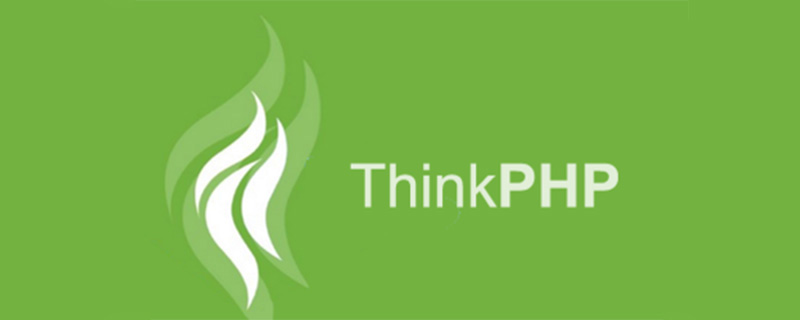 thinkphp是不是国产框架Sep 26, 2022 pm 05:11 PM
thinkphp是不是国产框架Sep 26, 2022 pm 05:11 PMthinkphp是国产框架。ThinkPHP是一个快速、兼容而且简单的轻量级国产PHP开发框架,是为了简化企业级应用开发和敏捷WEB应用开发而诞生的。ThinkPHP从诞生以来一直秉承简洁实用的设计原则,在保持出色的性能和至简的代码的同时,也注重易用性。
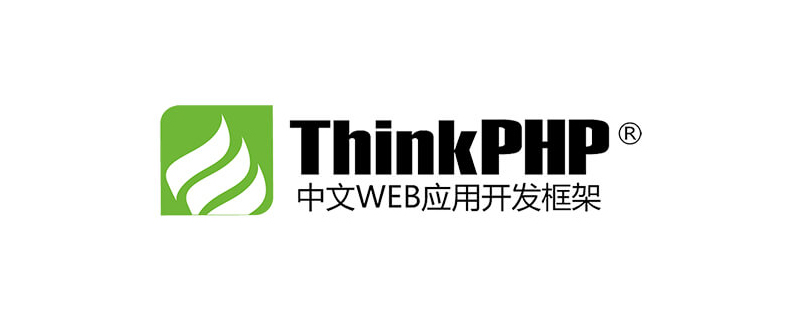 一起聊聊thinkphp6使用think-queue实现普通队列和延迟队列Apr 20, 2022 pm 01:07 PM
一起聊聊thinkphp6使用think-queue实现普通队列和延迟队列Apr 20, 2022 pm 01:07 PM本篇文章给大家带来了关于thinkphp的相关知识,其中主要介绍了关于使用think-queue来实现普通队列和延迟队列的相关内容,think-queue是thinkphp官方提供的一个消息队列服务,下面一起来看一下,希望对大家有帮助。
 thinkphp的mvc分别指什么Jun 21, 2022 am 11:11 AM
thinkphp的mvc分别指什么Jun 21, 2022 am 11:11 AMthinkphp基于的mvc分别是指:1、m是model的缩写,表示模型,用于数据处理;2、v是view的缩写,表示视图,由View类和模板文件组成;3、c是controller的缩写,表示控制器,用于逻辑处理。mvc设计模式是一种编程思想,是一种将应用程序的逻辑层和表现层进行分离的方法。
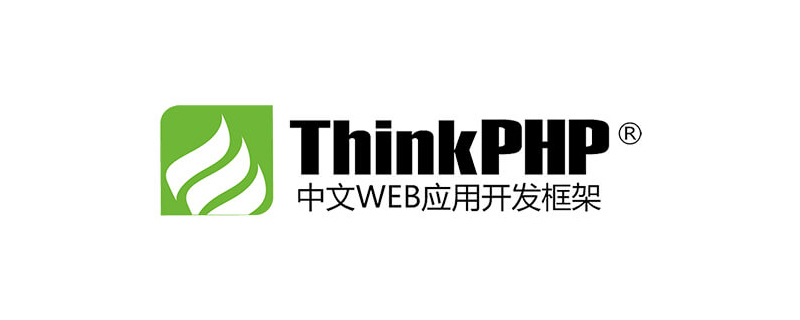 实例详解thinkphp6使用jwt认证Jun 24, 2022 pm 12:57 PM
实例详解thinkphp6使用jwt认证Jun 24, 2022 pm 12:57 PM本篇文章给大家带来了关于thinkphp的相关知识,其中主要介绍了使用jwt认证的问题,下面一起来看一下,希望对大家有帮助。
 thinkphp扩展插件有哪些Jun 13, 2022 pm 05:45 PM
thinkphp扩展插件有哪些Jun 13, 2022 pm 05:45 PMthinkphp扩展有:1、think-migration,是一种数据库迁移工具;2、think-orm,是一种ORM类库扩展;3、think-oracle,是一种Oracle驱动扩展;4、think-mongo,一种MongoDb扩展;5、think-soar,一种SQL语句优化扩展;6、porter,一种数据库管理工具;7、tp-jwt-auth,一个jwt身份验证扩展包。
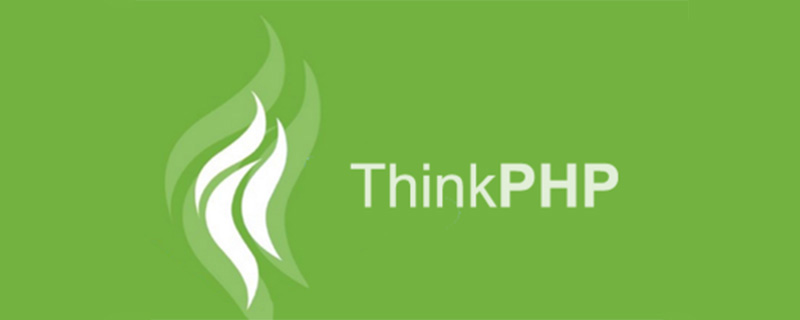 一文教你ThinkPHP使用think-queue实现redis消息队列Jun 28, 2022 pm 03:33 PM
一文教你ThinkPHP使用think-queue实现redis消息队列Jun 28, 2022 pm 03:33 PM本篇文章给大家带来了关于ThinkPHP的相关知识,其中主要整理了使用think-queue实现redis消息队列的相关问题,下面一起来看一下,希望对大家有帮助。
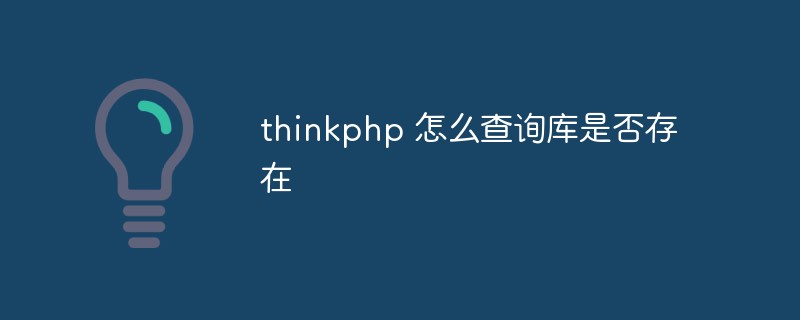 thinkphp 怎么查询库是否存在Dec 05, 2022 am 09:40 AM
thinkphp 怎么查询库是否存在Dec 05, 2022 am 09:40 AMthinkphp查询库是否存在的方法:1、打开相应的tp文件;2、通过“ $isTable=db()->query('SHOW TABLES LIKE '."'".$data['table_name']."'");if($isTable){...}else{...}”方式验证表是否存在即可。
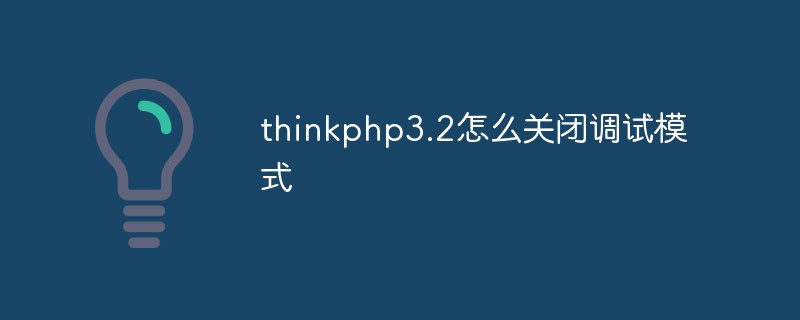 thinkphp3.2怎么关闭调试模式Apr 25, 2022 am 10:13 AM
thinkphp3.2怎么关闭调试模式Apr 25, 2022 am 10:13 AM在thinkphp3.2中,可以利用define关闭调试模式,该标签用于变量和常量的定义,将入口文件中定义调试模式设为FALSE即可,语法为“define('APP_DEBUG', false);”;开启调试模式将参数值设置为true即可。


Hot AI Tools

Undresser.AI Undress
AI-powered app for creating realistic nude photos

AI Clothes Remover
Online AI tool for removing clothes from photos.

Undress AI Tool
Undress images for free

Clothoff.io
AI clothes remover

AI Hentai Generator
Generate AI Hentai for free.

Hot Article

Hot Tools

SAP NetWeaver Server Adapter for Eclipse
Integrate Eclipse with SAP NetWeaver application server.

Dreamweaver Mac version
Visual web development tools

SecLists
SecLists is the ultimate security tester's companion. It is a collection of various types of lists that are frequently used during security assessments, all in one place. SecLists helps make security testing more efficient and productive by conveniently providing all the lists a security tester might need. List types include usernames, passwords, URLs, fuzzing payloads, sensitive data patterns, web shells, and more. The tester can simply pull this repository onto a new test machine and he will have access to every type of list he needs.

SublimeText3 Linux new version
SublimeText3 Linux latest version

EditPlus Chinese cracked version
Small size, syntax highlighting, does not support code prompt function





